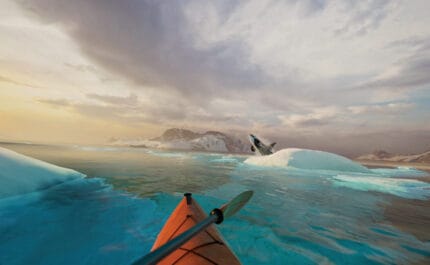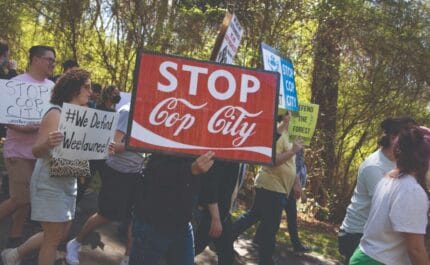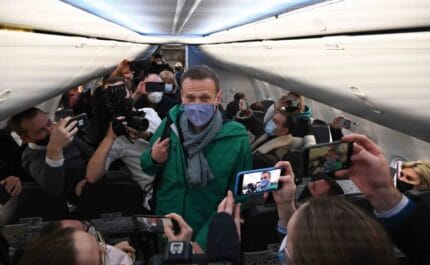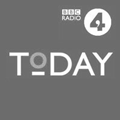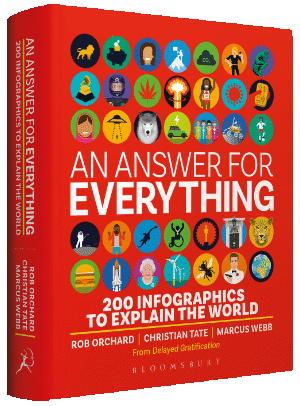“I was the devil of the sea” – conversations with former people smugglers
In July 2015 the UN’s refugee agency UNHCR declared that Europe was experiencing a “maritime refugee crisis of historic proportions”. For DG #20, Vidhi Doshi met a former people smuggler and his sidekick in Tunisia, and asked them about the thousands of desperate souls they ferried across the Mediterranean
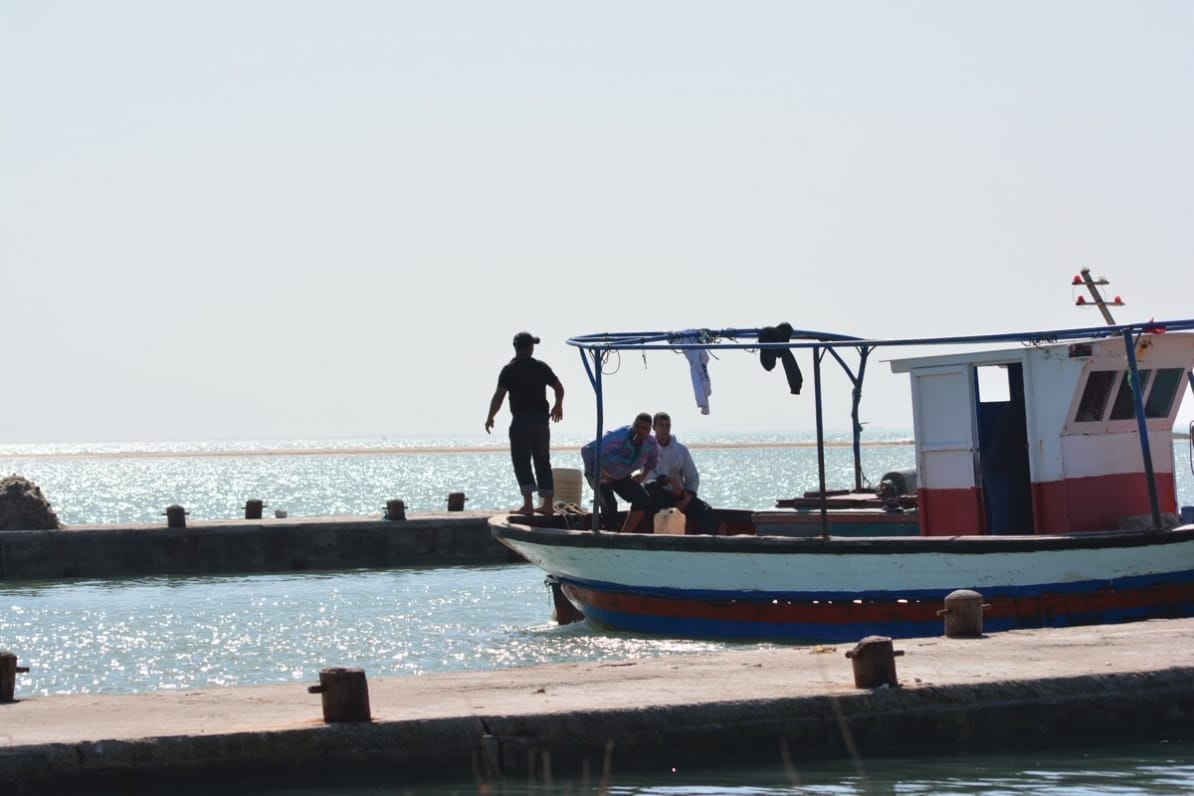
A fishing boat at anchor in the port of Kalâat el-Andalous. Photo: Vidhi Doshi
1st July 2015 (Taken from: #20)
Whenever Mehdi and Karim get together, they talk about the old days when they were Tunisia’s most notorious people smugglers. “Do you remember that time we went to that place in Hay Ettadhamen, where they were ready to pay with diamonds?” says Karim, laughing.
“Yeah, but we messed up the deal,” replies Mehdi, cigarette in hand.
“The Africans pay the most to be smuggled,” Karim tells me. “And when they get to Europe, they don’t come back. When you have a deal with Africans, don’t let it go.”
When they were still working, Mehdi was known as “el Bahri”, the “Man of the Sea”. The smaller of the two men, he keeps his red shirt unbuttoned at the top to reveal a tangle of chest hair: a packet of Marlboros pokes out of one pocket, an old Nokia phone from the other. He is older than Karim, his second cousin, and he walks slowly, with a limp. Karim is in his late thirties, with piercing blue eyes and the leathery skin of a man who spends his days working outdoors under the hot Tunisian sun.
We sit on white plastic chairs on the veranda of Mehdi’s family home, and Mehdi draws his close to me while we speak. He has a deep voice which commands attention and an air of importance from years of being known locally as the most daring man on the water. “I was the devil of the sea,” he says, fixing me with a steely-eyed gaze. “I know the seas from Libya to Syria to Italy. I know the seas very well and I can navigate very well.”
According to figures from the UNHCR, the United Nations’ refugee agency, an unprecedented 137,000 people made the arduous journey across the Mediterranean to reach Europe in the first six months of 2015. By the end of October, that number had shot up to 760,000. Over a fifth of those who arrived were children. More than 3,300 people lost their lives or went missing along the way. This, according to European commissioner for migration Dimitris Avramopoulos, is now the worst refugee crisis the world has seen since the Second World War.
After the Arab Spring in 2011, the numbers of people fleeing to Europe across the Mediterranean began to climb dramatically; the start of the civil war in Syria saw them grow exponentially. In September, the image of a young Syrian boy, Alan Kurdi, whose body had washed up on the shores of Turkey, further focused international attention on the situation.
‘Do you know Azrael?’ he asks, referring to the Angel of Death in Islamic lore. ‘We work with Azrael’”
For weeks, the migrant and refugee crisis was on the front pages of newspapers and on television screens across the world. But long before it became a global news story, smugglers like Mehdi and Karim had been regularly delivering boatloads of people to Europe, in their case Sicily, from Tunisia. “We’ve seen bodies like his [Alan Kurdi’s] in the water,” Mehdi says matter-of-factly. “And we’ve taken bodies like that out of the water. Do you know Azrael?” he asks, referring to the Angel of Death in Islamic lore. “We work with Azrael.”
I first met Mehdi and Karim in Kalâat el-Andalous, a small Tunisian coastal town, around 30 kilometres north of the capital, Tunis. The people of Kalâat el- Andalous are the descendants of seventh century fugitives from Andalusia, and are proud of their Spanish blood. Over the years, their sleepy fishing town has become a major smuggling hub. Just two weeks before I arrived, a local fishing boat packed with 40 people had been caught by the maritime guard on its way to Italy.
“Mehdi had nothing to do with that,” Karim assures me, “but the police still come and ask him questions whenever they catch a boat.” Karim took me to Mehdi’s home on his motorbike. “His place is not actually that far, but I’m taking a longer route to avoid the police,” he said as we sped along dirt tracks. “Mehdi has a lot of problems with the police.”
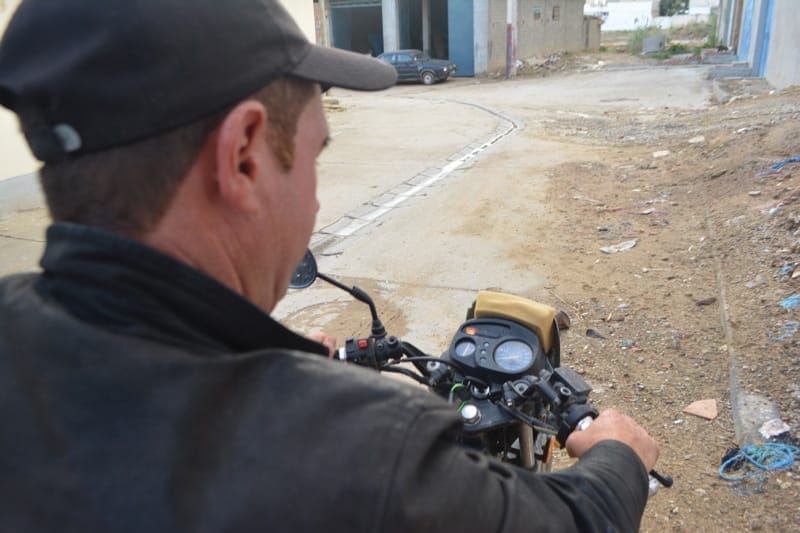
Karim drives his motorbike round the back streets of Kalâat el-Andalous to meet fellow former people smuggler Mehdi. Photo: Vidhi Doshi
This was my third attempt to meet with Mehdi. The first he missed because his phone had gone dead; the second because he got drunk after a fight with his wife. When I asked Karim earlier that afternoon if he thought we’d get to meet Mehdi that day, I got the same cosmically uncertain one-word answer that punctuates almost all sentences in the future tense in this country. “Insh’Allah,” he said, “if God wills it.”
“I started in ’91 or ’92,” Mehdi recalls. “At that time, Tunisians and Moroccans were the majority of the people who wanted to go to Italy. After that, Algerians started coming in the late 1990s and 2000s, and Libyans started to arrive after the civil war.” Karim was roped in to the smuggling trade because Mehdi needed a henchman, someone tough who could defend him. He recalls taking groups of Iraqi refugees across the Mediterranean when he started, just after the Gulf War. Now, many of those who come to Tunisia are Syrian.
Mehdi explains the route he used to take to Italy. “We tried to get to the closest place, in the minimum time with the minimum effort,” he says. He explains that a final destination was rarely fixed in advance. “We knew the map. We did the navigation with a compass. When you’re sailing around 60 degrees, you’re heading towards Sicily – Marsala, Agrigento.” Karim pulls out his phone and shows me the route on Google Maps. “From Kalâat el-Andalous to [the Tunisian island of] Zembra, it’s six hours because you’re going against the current,” he says, tapping to zoom in on a stretch of ocean. “Then it’s another eight hours to Pantelleria [an island in the Strait of Sicily]. Then you arrive at Sicily, and you can see the mountains that run all the way along the coast from Trapani to Mazara. That’s when people jumped off the boats and swam to shore. And we would come back.”
It was Mehdi’s boat that first helped him earn his reputation. “The boat was so big: 220 horsepower, 16 metres, 20 knots,” says Karim. “If you saw Mehdi’s boat it was always an hour ahead of the police patrol boats. They would never catch it.” He eventually ended up running a whole series of boats, an operation that transported thousands of people across the Mediterranean.
Haram money is spent on haram things: girls, life, not to feed my sons. That’s why we didn’t make anything from smuggling”
Karim says that Mehdi, a former fisherman, was initially forced into smuggling after Italian industrial trawlers started operating off the coast of Kalâat el- Andalous. “The Italians came with their big boats,” he says. “He couldn’t find any more fish. He was lucky enough to earn money from smuggling. So he did it again and again.” Karim, who now runs a construction business, says his own motivations were completely different. “I was never doing this for money. I did it for the thrill, for the adventure.”
“Haram [sinful] money is spent on haram things,” he says. “Girls. Life. Not to feed my sons. You spend your money everywhere. That’s why we didn’t make anything from smuggling. Have you seen those Egyptian movies where they throw money on the dancers? We have women like that in Tunisia. We spent thousands of dinars. I was single at the time. It was not unusual for me to spend 2,000 dinars (£670) in one night. You’ll never find a smuggler who made a lot of money. Never. Even Mehdi – what he gained from smuggling, he spent in jail.”
The simple furnishings of Mehdi’s house seem to confirm Karim’s account. “I went [into people smuggling] because of material need,” says Mehdi. “Life in Tunisia is tough.” He now works as a middleman in the local fishing trade. Compared to his days as a smuggler, his monthly income is small. “I used to live in another house, I used to live better. My wife has a small carpet workshop. She earns more than I do.”
Karim and Mehdi’s stories of their days as smugglers are a blur of drunken memories: that time their boat almost got stolen at Eid; that Ramadan when they tried to get a boat out almost every single night; the time the police came on board and found knives that migrants had brought to protect themselves with. “Every journey I drank 100 bottles of beer, going there and back,” says Mehdi, laughing.
Even without the booze, the job was unpredictable and chaotic. They never really knew which port they would stop near in Sicily, or how long the journey would take. And getting people to pay could be tricky. “In your plan, there are 50 people going,” says Karim. “But it’s hard to collect money from more than 35. Some people will board the ships in secret. Sometimes we cancelled the trip because we didn’t have enough money to cover all our expenses. Sometimes we only had a few minutes to get out, we didn’t have time to struggle about money.”
I was investigated for two days, but they couldn’t charge me. I paid a bribe and got away”
The pair tried different ways to organise the money collection. Sometimes, they’d nominate one person who would keep all the money from everyone on board until the boat got to Italy, when they’d hand it over to the smugglers. At other times they would try to organise collections from the migrants and refugees on the shore, before departure. “They’d say, ‘I sold my mother’s gold to get this money.’ Their stories blow your mind,” says Karim. “There’s a lot of risk, because you’re not buying an airplane ticket to get out. They’ll tell you, ‘I’ll pay you on the beach.’ And you don’t know how much money they have – maybe 5,000 dinars, maybe 500. You’ll never get all the money. Some people come without a penny. Some people will phone their friends saying, ‘We’re in this place, come!’ And they come at the last minute, without money.”
Karim rattles off a list of expenses for every journey. If Mehdi was going to captain the trip, he would use his own fishing boat; other captains who worked for his cartel would need their own boats, which the men would buy from local fishermen. An old, often faulty fishing boat cost 10-15,000 dinars (£3,200-£4,800) and they’d allow 5,000 (£1,600) to bribe the maritime guard. Other outlays included fuel – which they’d buy inland so the port authorities didn’t get suspicious – payment for all the men, and, of course, the booze for the journey. Sometimes they’d also pay for a house where all the migrants would stay for three or four days until the beach was clear.
Karim recounts the time he was caught during one of his last smuggling attempts before he went straight. “We’d paid the maritime guard off. But when we were trying to leave, a fishing net got stuck in the boat’s rudder and it stopped working. I dived into the water with a knife to cut it loose. When I came back to the surface, the cops and the national guard were standing there waiting for me. The people we were going to take across were waiting on the shore. They were stuck at the port. The fishing net was still attached to my boat.”
When he was caught, Karim was investigated by the maritime guard. “I denied it. I said I was just guarding the boat. They didn’t actually catch any people on board, so that’s what saved my neck. I was investigated for two days, but they couldn’t charge me. I paid a bribe and got away.”
The people who go know the risks. It’s a risky business and the people who smuggle are sharing the risk”
Despite the disorganisation of his operations, over time Mehdi earned a name for himself. “Everyone had heard of Mehdi,” he says. “Sometimes the people who got to Italy and did well brought me gifts when they came back.” When I ask if he was ever afraid, Mehdi replies without missing a beat. “Scared of what? Of the sea? No. The sea and I, we’re used to each other. We’re friends.” Karim quotes Muammar Gaddafi when I ask him the same question. “Always forward,” he says. “I don’t know fear. It is not in my vocabulary.”
I ask Mehdi if he is religious and he says that he doesn’t pray. “The two paths don’t go together,” he says. For him smuggling is just a business like any other. “Between us there’s the sea. Two points. I drop [the migrant] off at his destination. It’s each man for himself.”
Karim reflects on those who have lost their lives crossing the Mediterranean in the last few years. “The person who smuggles them doesn’t feel anything. What is he supposed to feel? He’s not their mother or father. The people who go know the risks. It’s a risky business and the people who smuggle are sharing the risk.”
In 2011 and 2012, Mehdi spent a total of 14 months in jail for a crime he says he did not commit. A small fishing boat smuggling 40 people sank, and 12 people died. Mehdi recounts the story, saying that a young man from the town had come to him asking how to get to Italy.
“He said, ‘Uncle Mehdi, I’m going on that boat.’ I said, ‘That boat won’t get you to Italy. If you’re going, take [only] ten or 15 people.’”
Three hours into the journey, the boat was flipped over by a wave. “He didn’t heed my advice. That’s why I went to jail,” says Mehdi. “I told him this boat can carry 15 people. But he put more than 40 people on board. Twelve people died. They investigated me for the deaths of 12 people. I went to jail because I gave advice.” Mehdi says he was not involved in the organisation of the smuggling attempt, nor did he receive any money for it. “My only connection is that I was friends with [the smuggler]. I didn’t have a hand in it.”
“He wasn’t a real captain,” Mehdi continues. “He was a rookie. When the boat flipped, he was the first to die. The people with him made a mistake. They insisted on going on that boat, because they’d already paid.” Mehdi pauses before continuing. “He was engaged to be married,” he says, with regret in his voice. “If I knew he was going to die, I would have gone myself.”
As part of his sentence, Mehdi was banned from going within two kilometres of the sea, a restriction which has been strongly enforced by the local police. I ask Mehdi whether, if the ban were lifted, he would try to smuggle people to Europe again. “I haven’t got a boat. If they gave me a boat and money, I’d go.” He names his price. “If they gave me 300,000 dinars (£96,000), I’d go. For me it’s a job. I’d do a voyage.”
When we were alone earlier, Karim told me that despite Mehdi’s bluster, he is no longer the same man he was before he went to jail. “Mehdi has changed a lot. He’s not the same. He’s scared now. He’s changed totally. [In prison] the cops beat him until he could no longer stand.”
“Smuggling is like the stock market. If it goes up, everyone will run towards it. If it goes down, people will run away,” says Karim, trying to explain why smugglers risk so much to ferry people across the Mediterranean.
There is more death than life in the sea. But people still charge on”
Karim doesn’t share the desire to flee to Europe. “Here you work day and night and you only make 20 dinars,” he admits. “You see some guy come back from Italy in the summer with a new car, showing off in front of you. But the truth is, you’re living better here than him. The only thing they have better than us is leisure, human rights and luxury cars. I wish I could open a school to teach the people who want to go to Europe what will happen when they get there. For you, as an Arab, there are no rights. The Arab is like a dog there.”
Mehdi disagrees. “It’s not crazy to want to go to Europe,” he says. “There is more death than life in the sea. But people still charge on. In Tunisia, people are dead anyway. I’m one of them. I’d be the first to go if I could,” he says.
“Always they have hope,” he says of the people who make the journey. “If they succeed, all is well. If they die, they die. As God wills it.”
Some names have been changed.
Slow Journalism in your inbox, plus infographics, offers and more: sign up for the free DG newsletter. Sign me up
Thanks for signing up.
